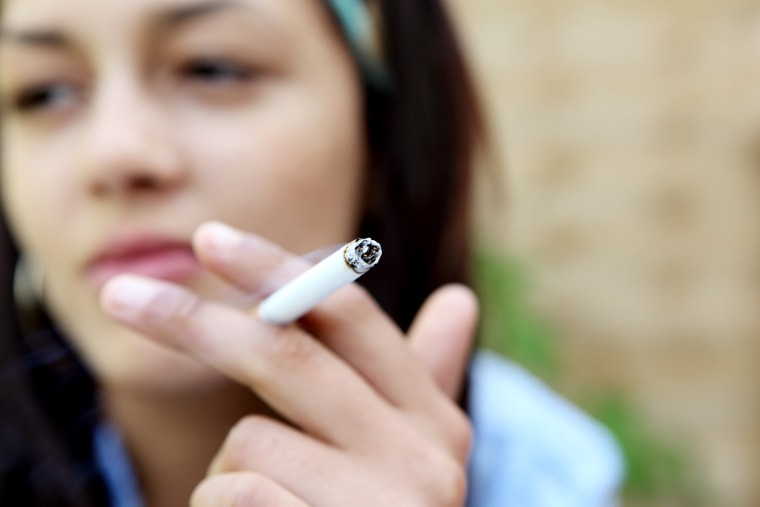Lesbian, gay and bisexual adolescents report higher rates of tobacco use than heterosexual teens, according to a U.S. study that also highlights gender differences in smoking habits.
Overall, about 41 percent of lesbian and gay teens use tobacco products including both traditional and e-cigarettes, as do 39 percent of bisexual youth and 32 percent of adolescents who are uncertain about their sexual orientation, the study found. That compares to 30 percent of heterosexual teens.

Lesbians were more than twice as likely as straight girls to smoke, the study also found. Gay teens, however, had roughly the same odds of tobacco use as heterosexual boys.
"Gender does matter in tobacco use among sexual minority youth," said lead study author Dr. Hongying Dai of Children's Mercy Hospital and the University of Missouri in Kansas City.
While some previous research has found teens who aren't heterosexual tend to be more drawn to smoking than their straight peers, the current study offers fresh insight into how both gender and sexual orientation may separately influence tobacco use, Dai said by email.
For the study, researcher examined nationally representative survey data collected from 14,703 adolescents in high school in 2015.
Most of the participants were heterosexual, while 6 percent were bisexual, 2 percent were gay or lesbian and about 3 percent said they weren't sure about their sexual identity.
The survey looked at how often youth used four types of tobacco products over the previous month: cigars, snuff or chewing tobacco, traditional cigarettes, and e-cigarettes, which are battery-powered gadgets with a heating element that turns liquid nicotine and flavorings into a cloud of vapor that users inhale.
Gay and lesbian teens, as well as youth uncertain about their sexual orientation, or "questioning," were more likely than their straight peers to use all four types of tobacco products, researchers report in Pediatrics.
Bisexual teens, a predominantly female group, were more likely than heterosexual youth to use cigarettes, cigars and e-cigarettes but less likely to use snuff.
The results highlight the need for tobacco control policies that specifically target youth who aren’t heterosexual, the authors conclude.
Limitations of the study include the lack of data on transgender teens and the exclusion of youth who dropped out of high school, the researchers point out. The study also counted any amount of tobacco use the same way, so it didn’t separate teens who reported trying one cigarette from youth with a daily smoking habit.
Related: Gay-Straight Alliances More Important Than Ever, Advocates Say
It also wasn't a controlled experiment designed to prove whether sexual orientation directly influences tobacco use.
"Sexual orientation is not the cause of the smoking disparities; the stigma of being LGBTQ is the problem," said Michele Eliason, a researcher at San Francisco State University who wasn't involved in the study.
"Many youth fear rejection by family and peers and hide their sexuality," Eliason said by email. "This is very stressful and smoking is used as a form of stress release."
It's also possible that some lesbian, gay, bisexual, transgender and queer (LGBTQ) teens may be open about their sexuality and engaged in LGBTQ communities, where they find more acceptance for smoking and drug use, Eliason added. When teens have a social support network with other smokers, they are more likely to start smoking themselves.
Providing a strong support system at home can make a difference, said Heather Corliss, a public health researcher at San Diego State University who wasn't involved in the study.
"The most important thing parents can do is to support their teens unconditionally and without judgment. This recommendation applies to parents of all teens regardless of their sexual orientation," Corliss said by email.
"Teens who have a strong attachment to a parent are less likely to use tobacco than those who are less connected to their family," she added. "Parents should foster strong relationships with their teens, while at the same time maintaining consistent rules and limits."
